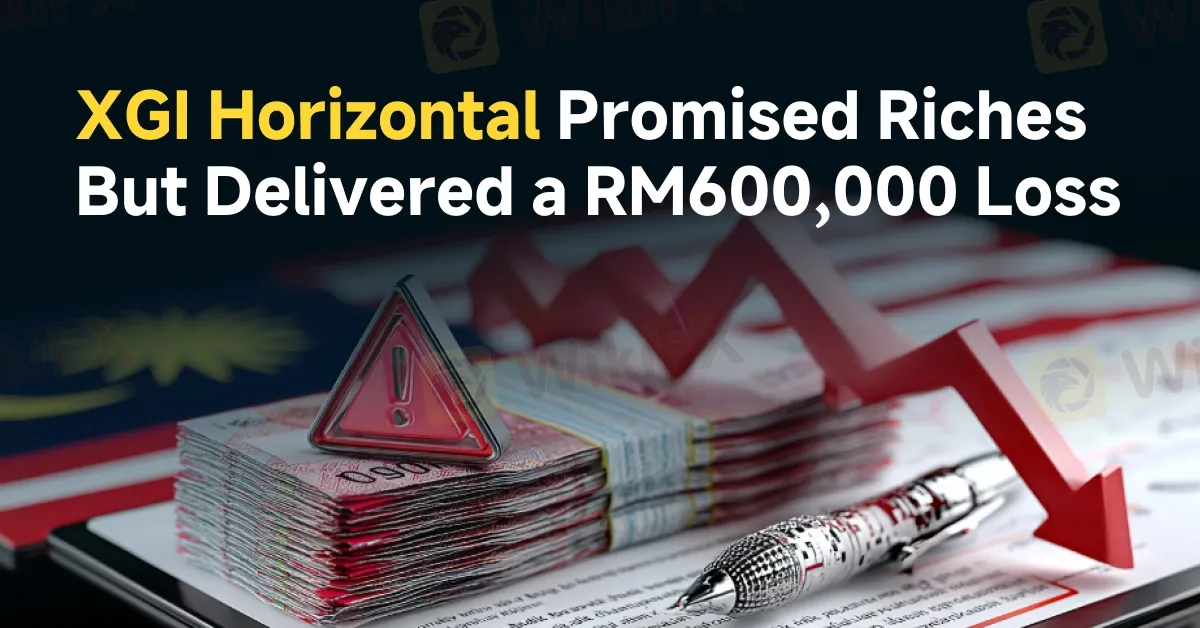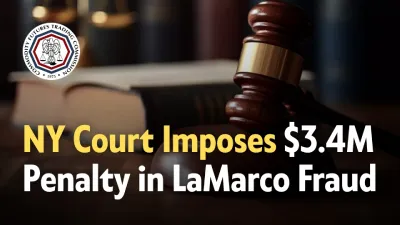简体中文
繁體中文
English
Pусский
日本語
ภาษาไทย
Tiếng Việt
Bahasa Indonesia
Español
हिन्दी
Filippiiniläinen
Français
Deutsch
Português
Türkçe
한국어
العربية
XGI Horizontal Promised Riches But Delivered a RM600,000 Loss
Abstract:A woman in her late 40s, working as a civil servant in Sibu, Sarawak, has lost more than RM600,000 to a fake investment scheme promoted through social media.

A woman in her late 40s, working as a civil servant in Sibu, Sarawak, has lost more than RM600,000 to a fake investment scheme promoted through social media.
The victim came across the investment offer on Facebook in early March 2025 while browsing at home. The scheme, run by a group calling itself “XGI Horizontal,” promised large profits in a short amount of time. Attracted by the offer, the woman began speaking to the person behind the ad through WhatsApp.
Over time, she made several bank transfers to the scammers account. In total, she sent around RM600,000, believing she would soon receive the high returns she was promised. However, the fraud only became clear when the scammer continued asking for more money, and she realised she had not received any of the promised profits.

Police said the woman then filed a report after understanding she had been tricked. Authorities have urged the public to be extra careful when dealing with investment opportunities, especially those advertised online or through social media platforms.
This case is one of many showing how fraudsters are using digital tools to target people with offers that sound too good to be true. These scams often appear professional and convincing, making it difficult for victims to see the warning signs.
To help prevent such losses, potential investors are advised to check the background of any investment platform before sending money. One tool that can help is WikiFX, a free mobile app available on Google Play and the App Store. It allows users to search for information about brokers, including their licence status, user reviews, and safety scores.

WikiFX gives users important details that can help them decide whether a platform is safe. It also warns people about risky or unlicensed investment services. With this kind of information, investors can protect themselves and avoid falling into scams.

Disclaimer:
The views in this article only represent the author's personal views, and do not constitute investment advice on this platform. This platform does not guarantee the accuracy, completeness and timeliness of the information in the article, and will not be liable for any loss caused by the use of or reliance on the information in the article.
Read more

Weekly "Scam Brokers List" out! Check Is You Broker listed here?
The forex market is increasingly prone to scams, and forex trading has become riskier due to the growing number of fraudulent forex brokers. So, how can you protect yourself and your hard-earned money? Being informed is the most powerful weapon you can use to safeguard yourself. This article aims to raise a fraud alert — read on to learn about the scam brokers you should stay away from and how to spot red flags before it's too late.

Aron Markets Review 2025: Is It A High-Risk Broker?
Aron Markets is an unregulated offshore broker with high leverage and mounting risk warnings—read this 2025 review before depositing funds.

Zerodha Scam: Investor Loses ₹3.5 Lakh ! Spot the Red Flags & Protect Yourself
Indian investor Maryam Khan, 35, was scammed out of nearly ₹35 Lakh in a fraudulent stock investment scheme orchestrated by individuals impersonating the legitimate financial firm Zerodha. The scam began when Khan came across a Facebook Reel on July 4 promoting fake investment opportunities. After contacting the WhatsApp number listed in the ad,

New York Court Finalizes $3.4M Penalty in LaMarco Forex Fraud
Federal court finalizes $3.4M penalty and lifetime ban in Daniel Winston LaMarco Ponzi-style forex case; CFTC highlights investor protection and enforcement.
WikiFX Broker
Latest News
ASIC Regulated Forex Brokers: A Comprehensive 2025 Guide
Is TradeEU Reliable in 2025?
Professional Forex Trading: Skills, Tools, & Strategies for Success
Investing in OnFin? Absurd Withdrawal Conditions & Trade Manipulation May Spoil Your Trading Mood
How Commodity Prices Affect Forex Correlation Charts
TopFX Launches Synthetic Indices Trading on cTrader Platform
Is CBCX a Safe and Trustworthy Broker for Traders?
Quotex Broker Review 2025: Is It a High-Risk Broker?
Top 5 Warning Signs- Why You Should Avoid MTrading Broker?
PrimeXBT Expands FSCA Licence and Enhances Crypto Services in 2025
Currency Calculator


